Faculty-Work-in-Progress – Tears of Compassion in Classical Athens
November 13th, 2018
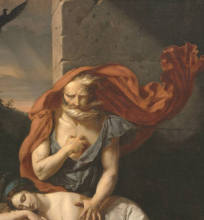
In her talk, Rachel Sternberg, Associate Professor in the Department of Classics, argues that Plato’s criticism of tragedy reflected a significant change he observed during his lifetime (c. 429-347 BCE): that men were crying more freely than they had in his childhood and youth, a change he blamed (plausibly) on the emotionally stirring effects of poetry. Work by cultural anthropologist William M. Reddy can help us interpret this possibility via analogy with a shift that occurred in late 18th-century France as people learning empathy from an energetic new literary genre — the novel — became more sympathetic and began to cry much more than previously. Reddy theorizes that the moment created a new “emotional regime” that changed the entire culture. Sternberg suggests that in the fifth century BCE, an energetic new genre — tragic drama — taught empathy, drew tears, and changed the culture of Athens.
2017 Walter A. Strauss Lecture: The Importance of the Sciences – and the Arts
Fri, Dec 7 2018, 5:00 PM
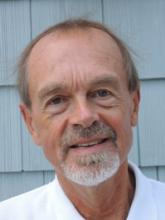
Celebrated philosopher Philip Kitcher of Columbia University is known for his studies of the role of scientific inquiry in democratic societies from the perspective the philosophy of pragmatism associated with William James and John Dewey. In a series of three lectures on “Education and Democracy,” Kitcher broadens this inquiry to investigate the aims of education with emphasis on the importance of the humanities and the arts. This lecture series, in memory of Walter A. Strauss (1923-2008), who was the Elizabeth and William C.
Resume Writing for Humanities Majors
January 29th, 2018
Location: Career Center, 229 Sears Library
This workshop is part of a series designed to offer Humanities majors the opportunity to improve their professional writing skills. This session will focus on resume writing. It will include a presentation and workshop time to review and/or work on documents. Whether you’re starting from scratch or have existing materials, this series aims to give you tools that will enhance the written documents needed for pursing your career.
An Evening with Claudia Rankine
January 23rd, 2019
Location: Cuyahoga County Public Library, Parma-Snow Branch, 2111 Snow Road
Poet Claudia Rankine will visit to discuss her powerful, award-winning book Citizen: An American Lyric.
An Iliad
January 27th, 2019
Location: Outcalt Theatre, 1407 Euclid Avenue
One actor. One musician. The Trojan War. With vivid storytelling and live cello, two women transform a bare stage into a raging battlefield where gods, heroes, and empires clash in a quest for vengeance and glory. Cleveland Play House presents this searing adaptation of Homer’s timeless epic catapults an ancient tale of fate and fury into the present day. Use code CLASSICS to purchase discounted tickets.
Faculty Work-in-Progress – The Secrets Between Us: A Conversation with Thrity Umrigar
January 30th, 2019
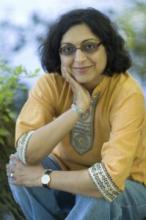
Location: Tinkham Veale University Center Ballroom A, 11038 Bellflower Road
DUE TO DANGEROUSLY LOW TEMPERATURES, THIS EVENT HAS BEEN CANCELLED. IT WILL BE RESCHEDULED FOR THE FALL 2019 SEMESTER.
Thrity Umrigar, Professor in the CWRU Department of English, will talk about the inspiration for her new novel and the challenges of writing a sequel.
2019 Baker-Nord Distinguished Faculty Lecture – Brooding Over the Face of the Deep: Language, Otherness, and Technologies of Translation
February 6th, 2019
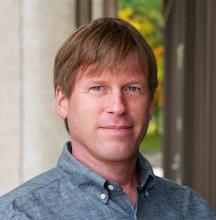
New and emerging media technologies are transforming our understandings and practices of translation. We are more aware than ever of the impossibility of separating message from medium. For biblical translators, this means and that our subject of research is not the Bible in media but Bible as media. What possibilities are emerging for altering translation in ways that not only make us more aware of the ambiguities inherent in any process of translation but also of the irreducibility of the text in translation as a kind of face of the other? How might new technologies and interfaces provide users access to the indeterminate processes of translation? How might we use them to create spaces that host protracted encounters with translation — broodings over the face of the deep, to borrow a biblical phrase — that open up creative, indeterminate, meaning-making possibilities?
Graduate Student Work-in-Progress – La Méthode graphique: Musical Anatomies and Scientistic Ruptures in Stepanov Dance Notation
February 21st, 2019
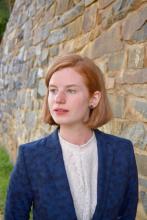
How can a performing art form be recorded on paper? In this presentation, Musicology PhD candidate Sophie Benn examines one possible answer to this question, found in a treatise on dance notation from the brink of twentieth-century modernism, Vladimir Ivanovich Stepanov’s Alphabet des mouvements du corps humain (1892). Stepanov suggests that the solution may lay in the latest developments of science, including a turn towards graphical representation championed by Étienne-Jules Marey, experimental psychology’s burgeoning interest in kinesthesia, and problems raised by Jean-Martin Charcot concerning research in neurological pathology.
Faculty Work-in-Progress – American Muslim Students during the Cold War
March 5th, 2019
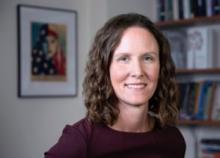
Through the 1970s, the Muslim Students’Association (MSA) was the only Muslim organization in the United States that boasted a national reach, with campus chapters in every geographic region. Embracing a revivalist and activist program, MSA members created Muslim spaces on campus, as well as mosques, schools, financial trusts, and non-profit organizations off-campus in order to reinvigorate religious practice among American Muslims and to improve the public image of Islam. In this lecture, Justine Howe, Assistant Professor of Religious Studies, explores how the MSA shaped U.S. religious politics as its members navigated the challenges and opportunities of Cold War America. An informal lunch will be served.
Panel Discussion: Changing the Politics of Earth
March 21st, 2019
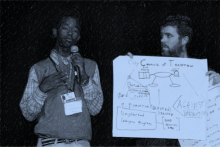
Planetary-scaled environmental issues are the frame for environmentalism today. They imply that we change how we think about politics. From re-examining extractive fossil fuels, to questioning the economy of animal products, to re-organizing governance of Earth and modifying some of our central moral, spiritual, and political concepts, the politics of Earth is the context for thinking about nature today.
- Home
- Events
- Past Events
- 2018-2019

